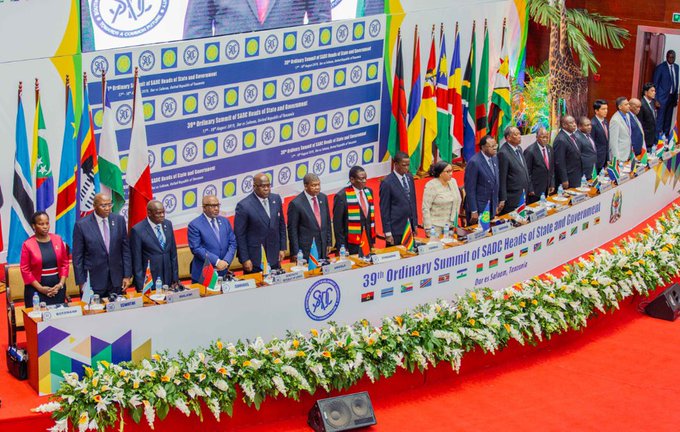Kiswahili originated on East Africa’s coast. It came about as a result of intermarriage between Bantu-speaking communities along the East African coast and Arabs.
The Southern African Development Community (SADC) has agreed to adopt Kiswahili as a formal language in the region.
SADC is comprised of 16 southern African countries – Angola, Botswana, Comoros, Democratic Republic of Congo, Eswatini, Lesotho, Madagascar, Malawi, Mauritius, Mozambique, Namibia, Seychelles, South Africa
United Republic Of Tanzania, Zambia, and Zimbabwe.
This was approved at the SADC 39th heads of summit held in Tanzania at Julius Nyerere International Center the 17th and 18th August 2019.
“Summit approved Kiswahili as the Fourth SADC Official Working Language, in recognition of its contribution, Mwalimu Julius Kambarage Nyerere’s role in the liberation struggle of Southern Africa,” reads part of the communique.
Further, President John Magufuli called for the prioritisation of the same across Africa.
‘‘I am appealing to your excellencies to fast track the adoption of Kiswahili to be among the four official languages in SADC…,” President John Magufuli said during the opening of the summit.
If implemented, Swahili will become an official language taking over English and Portuguese.
Currently, Kiswahili is an official language of the African Union and in East Africa and parts of central and southern Africa.
President Magufuli was elected Chairperson of SADC, and Filipe Jacinto Nyusi, President of the Republic of Mozambique as Incoming Chairperson of SADC.
According to Quartz Africa, South Africa plans to teach Kiswahili in schools beginning 2020 aimed to promote unity and “social cohesion with fellow Africans.”
Kiswahili will be the first African language, from outside South Africa, to be offered at schools.
In May 2018, the social networking giant, Twitter officially recognised Kiswahili as a language.
TWITTER RECOGNISES SWAHILI AS A LANGUAGE:
USA based social networking site Twitter recently added the capability to detect Swahili words in tweets & to translate them. Kiswahili which is widely used in East Africa, is Kenya's National language & it unites the people of Kenya. pic.twitter.com/TMzgWU1IXu— Ministry Of Youth Affairs, The Arts & Sports (@moscakenya) May 7, 2018




